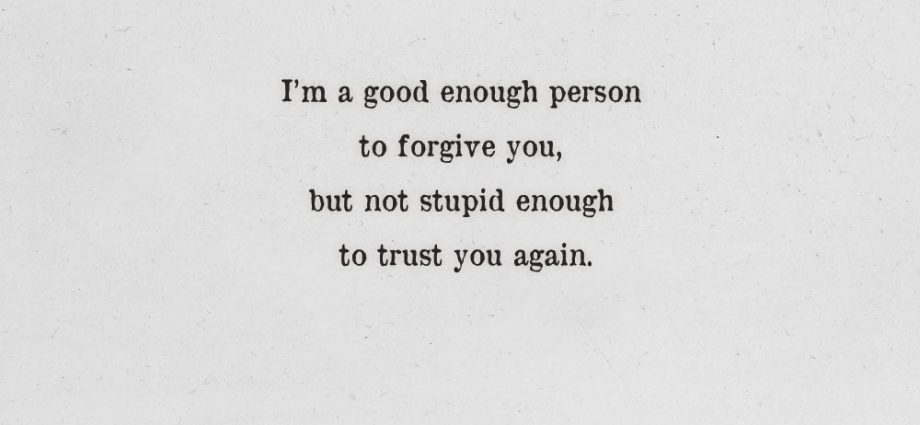Werrej
Too often, past mistakes, parental criticism, childhood trauma make us think we’re bad people. But is it possible to rethink your experience? Feel the goodness inside? Realize that we are actually good? We invite everyone to look deep into themselves and see the light that can change the world.
For many people, perhaps the most difficult thing is to believe in your own worth. That «I’m a good person.» “We can conquer peaks, work hard, acquire skills and behave ethically, but can we really, deep down, feel that we are good? Unfortunately no!» writes neuroscientist and psychologist Rick Hanson.
«Bad Soldiers»
We end up feeling bad in many ways. As an example, Rick Hanson recalls a familiar little girl who was effectively supplanted by the birth of a younger brother. The mother, exhausted by caring for the baby, drove her away and scolded her. The girl was angry at her brother and parents, sad, felt lost, abandoned and unloved. She watched a cartoon in which the soldiers of the evil queen attacked innocent villagers, and one day sadly said: «Mom, I feel like a bad soldier.»
Throughout life, shame, accusatory moralism, religious censure, and other critical remarks can take many forms and sizes. This undermines our self-esteem and gives rise to the idea that we are bad. Disbelief in our own «goodness» is fueled by situations in which we feel worthless, inadequate and unattractive. Hanson’s ranch-born father called it «feeling like a scraper.»
Skeletri fil-closet
Hanson writes that many people, including himself, have done bad things, had bad thoughts, or spoken evil words. Examples can be different — hitting a defenseless person, risking the life of your children by reckless driving, meanly treating a vulnerable person, stealing from a store, cheating on a partner, condemning or setting up a friend.
You don’t have to commit a criminal offense to feel guilty or ashamed. Sometimes a transgression or a negative thought is enough. Hanson explains: “Figuratively speaking, the psyche consists of three parts. One says: «You are bad»; another: «You are good»; and the third, the one with which we identify ourselves, listens to this argument. The problem is that a critical, dismissive, accusing voice tends to be much louder than a supportive, encouraging, and acknowledging one’s worth.»
“Of course, healthy remorse and remorse for hurting others is important,” Hanson writes. “But do not forget that somewhere in the very depths, through all the contradictions of character and actions, an all-penetrating kindness shines in each of us. Without justifying anyone for immoral actions, I can say with confidence: at their root, all intentions are positive, even if they are not implemented in the best way. When our senses and mind are not clouded by pain, loss, or fear, the brain defaults back to a basic state of balance, confidence, and compassion. The paths that can lead to the realization of the goodness hidden in us are not easy, and sometimes mystical.
Each of us is good
The truth is, Hanson believes, each of us is a good person. If we consider ourselves «bad soldiers» or simply unworthy of respect and happiness, then we behave carelessly and selfishly. On the other hand, once we feel our natural kindness, we are more likely to start doing good things.
Knowing this inner light, we can more easily recognize it in others. Seeing a good beginning in ourselves and others, we are more likely to try to make our common world good as well. How? Rick Hanson suggests that there are many ways to feel good and describes five of them.
1. Notice when we are being taken care of
When we are seen, heard and heard, appreciated, loved and cherished, it may take only a few seconds to enjoy this experience, to appropriate it for ourselves, to let it fill our body and mind.
2. Notice kindness in our thoughts, words and deeds
It also includes positive intentions, suppression of anger, containment of outbursts of destructive emotions, a sense of compassion and usefulness to others, perseverance and determination, love, courage, generosity, patience and a willingness to see and even speak the truth, whatever it may be.
By recognizing this kindness in ourselves, we can create a sanctuary for it in our minds and keep other voices, other forces aside. Those who are ready to invade and desecrate the sanctuary, such as the humiliating words and actions of others that we have learned.
3. Feel goodness within yourself
“Fundamental honesty and goodwill are present within everyone, no matter how deep they are hidden,” says Hanson. It is an intimate, unknown, perhaps even a sacred force, a current, a source in our heart.
4. See the kindness in others
This will help us feel our own inner light. Every day can be celebrated in other manifestations of justice, kindness and nobility. To feel within everyone the desire to be decent and loving, to contribute, to help, not to harm.
5. Doing good
Let the inner light and nobility every day more and more displace the negative from our lives. In difficult situations or relationships, it is worth asking yourself: “What, as a good person, can I do?” When we consciously act out of good intentions, it is easier for us to see a good person in ourselves and strengthen ourselves in this feeling.
The awareness of the presence of the inner light can be a source of strength and joy. “Enjoy this wonderful good, so real and so true,” urges Rick Hanson.










